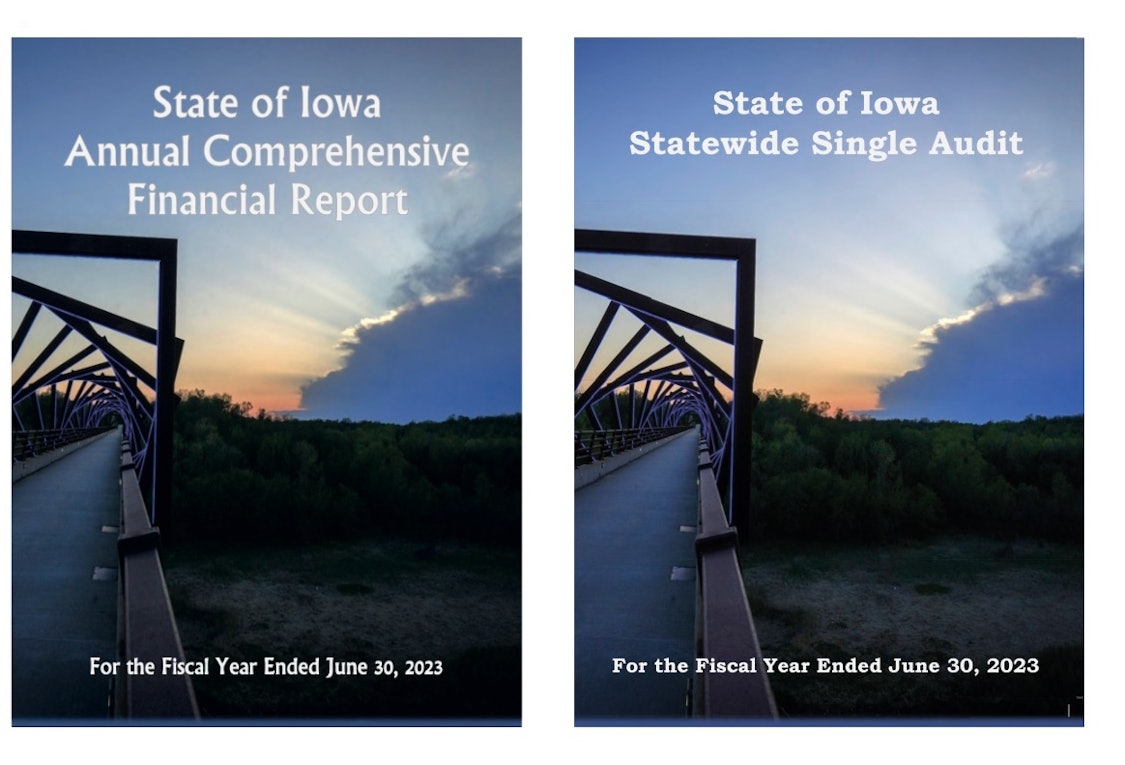
For the first time in four years, the state of Iowa submitted its Annual Comprehensive Financial Report and its Single Audit for the previous fiscal year without months of delays. The Iowa Department of Administrative Services released the comprehensive financial report covering fiscal year 2023 (July 2022 through June 2023) in late December, and the State Auditor’s office published the Single Audit on March 29.
The Annual Comprehensive Financial Report typically comes out within six months of the end of a fiscal year. But Iowa State University’s switch to the Workday system for accounting in fiscal year 2020 created enormous difficulty in compiling accurate financial data. As a result, the state’s comprehensive report for FY2020 came out nine months behind schedule.
For the next two years, turnover within the Department of Administrative Services delayed work on the comprehensive report, which came out more than seven months late for FY2021 and eight months late for FY2022.
The Single Audit is a mandatory report covering federal dollars spent by state agencies and universities. It typically comes out in late March but can’t be issued before the comprehensive report is complete. So beginning in FY2020, Iowa’s Single Audit was months late for three years in a row.
The state’s late financial reporting did not affect Iowa’s credit rating, which remains AAA according to Fitch and Aaa according to Moody’s. But the delayed Single Audits could have jeopardized the flow of federal funds to Iowa entities. Consequently, the State Auditor’s office worked out an arrangement with the U.S. Department of Education last year to issue separate single audits for the state universities, which could be published well before the state’s report was ready.
The auditor’s office published the latest round of single audits for the University of Iowa, Iowa State University, and University of Northern Iowa in March, conforming to the usual time frame.
In February, Republican State Senator Mike Bousselot cited the state’s late financial reports to justify Senate File 2311, which would allow state agencies to outsource their annual audits to private CPAs. He didn’t acknowledge that state auditors were not responsible for those delays. In fact, State Auditor Rob Sand’s chief of staff had warned other officials that the Department of Administrative Services had “not provided the information our office needs” to complete its opinion on the comprehensive report.
Although Iowa Senate Republicans approved Senate File 2311 in a party-line vote, the effort to let state agencies avoid scrutiny from state auditors stalled in the Iowa House State Government Committee, due to concerns it would result in higher costs and inefficiencies. The bill appears to be dead for this year.
NOTABLE FINDINGS
State auditors found no issues at the universities related to internal controls or compliance with federal laws and regulations during FY2023.
However, the statewide Single Audit found that the Iowa Department of Education improperly allocated federal funds “earmarked for school leaders to paraeducator programs” in community colleges or Area Education Agencies, “resulting in questioned costs of $840,672” during the last fiscal year.
The state agency said it had “relied upon internal legal guidance” in allocating those funds and is now working with the U.S. Department of Education to “identify appropriate next steps.”
The Single Audit also found ten “internal control deficiencies” in how Iowa Workforce Development used federal funds related to COVID-19 relief and unemployment insurance. An additional internal control problem at the Iowa Department of Human Services led to some unallowable payments from a federal program to children who were receiving subsidized adoption or foster care payments for the same month.
